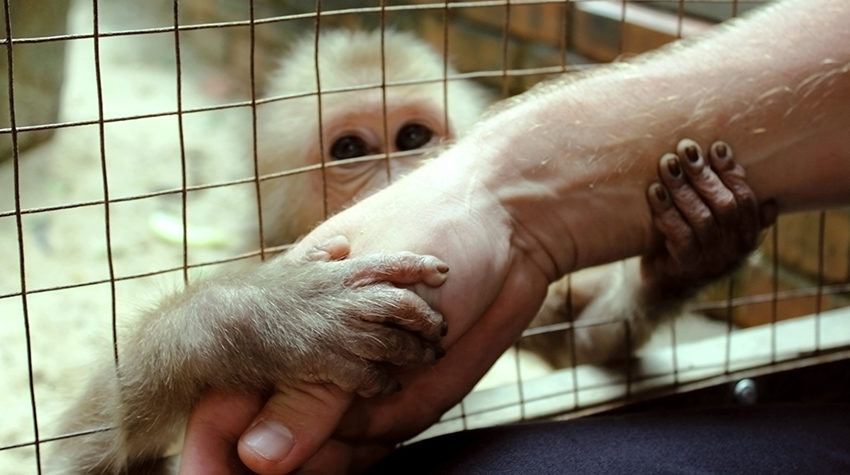
September 29, 2021Animal Law & Policy ClinicJudge Rules Clinic Can Pursue Case to Improve Standards for the Psychological Wellbeing of Primates Used in Research
Today (September 29, 2021), Judge George Hazel of the federal district court in Maryland denied the government’s motion to dismiss a lawsuit filed by Harvard Law School’s Animal Law & Policy Clinic that would improve standards for the psychological well-being of nonhuman primates used in research.
The case, filed on behalf of Rise for Animals (formerly New England Anti-Vivisection Society) and the Animal Legal Defense Fund, was the first to be filed by the Clinic back in November 2019.
Reacting to the news, Clinic Director Katherine Meyer said: “I am beyond thrilled with this ruling and the extremely hard work the Clinic did to get us to this point! Not only did Judge Hazel adopt all of our standing arguments, but in his discussion of the background to the case he clearly understands our position on the merits – which hopefully portends well for the next phase of the litigation.”
The lawsuit was filed against the Animal and Plant Health Inspection Service (APHIS) – an agency of the United States Department of Agriculture (USDA) – for denying a Petition for Rulemaking that the Plaintiff organizations submitted to the agency more than five years ago, in May 2014, requesting that it vastly improve the standards for the psychological well-being of primates.
The current standard, which allows each regulated research facility to come up with its own “enrichment plan,” has been in effect since 1991. Pointing out that the state of scientific knowledge about the psychological and emotional needs of primates has significantly advanced since then, the Plaintiffs seek to require the agency to promulgate more stringent standards. These standards would require the social grouping of primates of the same species, provide them tools for enrichment and decision-making, and require them access to the outdoors whenever possible.
The Petition also seeks to require labs to employ individuals trained to identify and ameliorate signs of psychological distress in the animals, and points out that using extremely stressed and traumatized animals as the basis for research intended to help humans skews the results of that research. It further based its request on standards for the psychological well-being of primates adopted in 2013 by its sister agency, the National Institutes of Health (NIH), for chimpanzees used in federally funded research.
In his ruling, Judge Hazel wrote that “many of the NIH-adopted requirements” correspond to elements that APHIS identified as “critical” to promote the psychological well-being of all primates decades ago, but yet have never mandated.
Having ruled that the Plaintiff organizations have alleged sufficient Article III standing to pursue their claims, the case will now proceed to the merits.
The Animal Law & Policy Clinic operates like a public interest law firm that teaches law students how to advocate on behalf of animals. The lawsuit and opposition to the motion to dismiss were prepared by former Clinic students Brett Richey, Boanne Wassink, and Rebecca Garverman under the supervision of Professor Meyer, a nationally renowned animal law expert.
